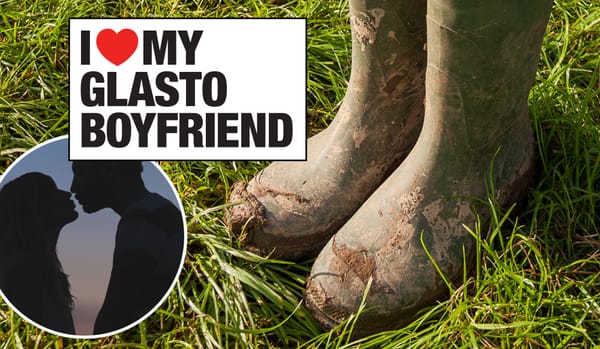My Glastonbury boyfriend
In this personal essay, one writer explores the music festival as a liminal space where (seemingly) cis-het men feel free to explore queerness
In this personal essay, one writer explores the music festival as a liminal space where (seemingly) cis-het men feel free to explore queerness

Words: June Bellebono
“I don’t feel this comfortable normally” he tells me, my head resting on his lap, joint comedown slowly easing as we cuddle on a rare bit of shaded grass.
“What do you mean?” I reply, already deducing what-he-means, “Like, with showing affection?”
“Yeah. I’m working on it. But I don’t feel comfortable yet.”
I can hear the hesitation in his tone.
“You’ve been really affectionate so far. What’s been different?”
He pauses, and then replies, “this is Glastonbury,” chuckling to himself.